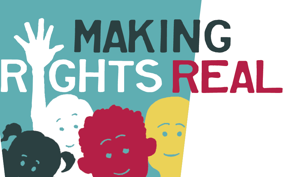
Rights Based Learning What is it? Why Do it?
Based Learning: What is it? Why do it?
Rights Based Learning allows children and young people to learn about their RIGHTS which are articulated through the United Nations Convention on the Rights of the Child (UNCRC). Our aim is to foster the social and emotional needs of our children enabling them to attain and achieve in an environment that champions the ethos of respect and dignity.
The benefits of Rights Based Learning are many and they should impact positively on the wellbeing of learners, adults and the ethos of the school:
- relationships are strengthened through people being treated with dignity, demonstrated by respectful attitudes and responsible actions. This will promote better learning and positive behaviour.
- children and young people feel safe, know there are adults to support them and are able to express their opinions in the knowledge that they will be listened to.
- inclusion and diversity are celebrated through an understanding and respect for race, disability, gender, religion and belief and sexual orientation, as outlined in the Equality Act (2010).
- citizenship is developed as children and young people increase their awareness of their role within the community and the world, learning about others who do not have their rights realised and ways to promote rights.
- parent and carer partnership is strengthened through increased involvement and engagement in the life of the school.
Rights Based Learning fully embodies the four capacities of Curriculum for Excellence: to enable each child or young person to be a successful learner, a confident individual, a responsible citizen and an effective contributor.
